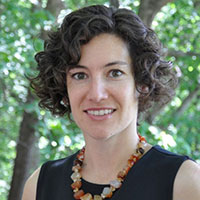Olshan, Desrosiers awarded CDC grant to study risk factors for birth defects
October 16, 2018
Two epidemiologists from the University of North Carolina at Chapel Hill’s Gillings School of Global Public Health have received funding from the Centers for Disease Control and Prevention’s (CDC’s ) Division of Birth Defects and Developmental Disabilities to study risk factors for birth defects.
Andrew Olshan, PhD, Barbara Sorenson Hulka Distinguished Professor, and Tania Desrosiers, PhD, assistant professor, were awarded a $4.37 million, five-year CDC grant to support the North Carolina Center for Birth Defects Research and Prevention (NCCBDRP).
As part of the award, the NCCBDRP will conduct the Birth Defects Study to Evaluate Pregnancy exposureS (BD-STEPS) in North Carolina and will pool data with five other CDC-funded centers for birth defects research across the U.S. to maximize the potential for discovery and impact.
Birth defects, which affect one in every 33 babies, are a leading cause of infant mortality and childhood disability in North Carolina and across the United States.
“The fact that the underlying etiology of most cases of birth defects remains unknown is a deep source of motivation to engage in this critical work,” said Desrosiers, co-principal investigator for the award. “What factors contribute to these outcomes? What can we tell affected families? How do we prevent future cases?”
To address these questions, Olshan and Desrosiers assembled a highly interdisciplinary team of investigators with expertise in teratology and dysmorphology (the study of birth defects), developmental biology, maternal-fetal medicine, perinatal and pharmaco-epidemiology, biostatistics, genetics, environmental health science and surveillance.
Over the next five years, the team will focus on the relationship between birth defects and infection during pregnancy – and on prescription medication use during pregnancy.
“Our goal is to identify behavioral, environmental and genetic risk factors with strong potential for clinical and public health translation,” said Desrosiers, who emphasized that a key ingredient in the team’s research infrastructure is the long-standing partnership with the CDC and other birth defects research centers. “We will have done our job if we can contribute information that ultimately leads to a reduction in the prevalence and life-long impact of birth defects.”
The NCCBDRP, a collaboration between the UNC Gillings School’s Department of Epidemiology and the North Carolina Division of Public Health’s Birth Defects Monitoring Program, has been funded continuously since 2002. The Center has made significant contributions to the National Birth Defects Prevention Study, the largest epidemiologic study ever conducted of more than 30 types of birth defects in the United States.
Contact the Gillings School of Global Public Health communications team at sphcomm@listserv.unc.edu.


